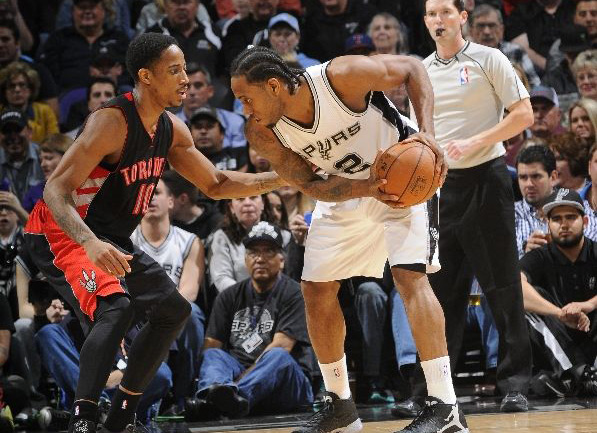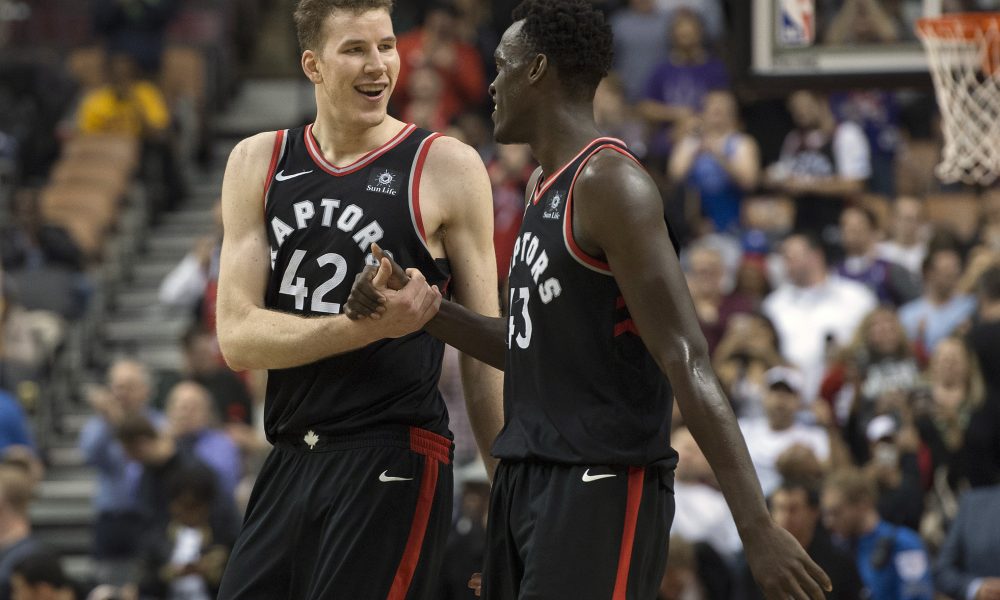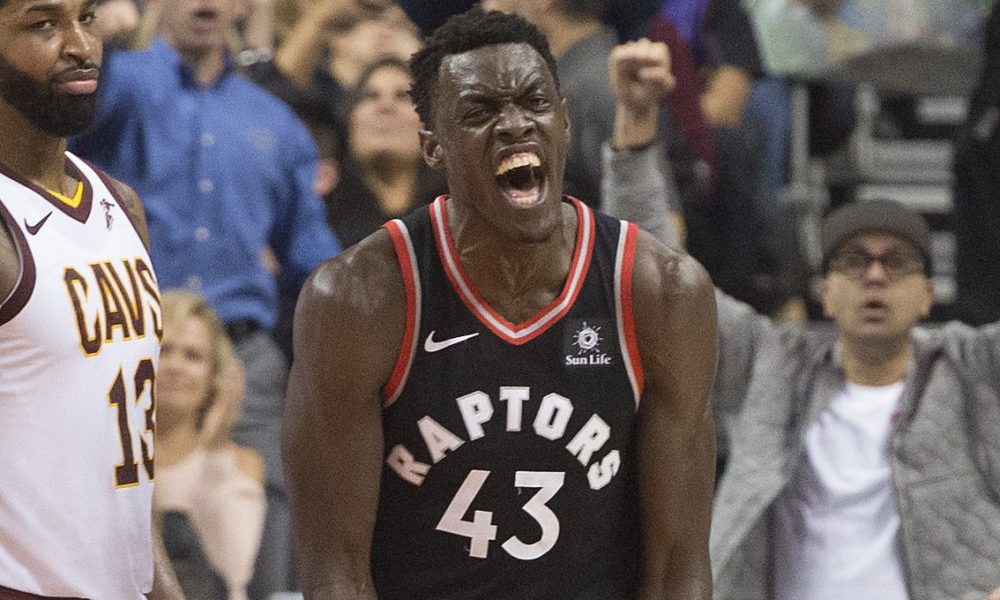It’s been two months since Dwane Casey was fired as the Toronto Raptors’ head coach, and any Raptors fan worth their salt will tell you that the move signalled the end of an era.
In 2011, Toronto hired Casey away from the then-champion Dallas Mavericks to try and bring a fresh defensive mentality to a lowly Raps club featuring a 22-year-old DeMar DeRozan. The team went on to win 23 games and finished with the 14th-best defense in the league, an improvement on the previous season’s ranking of dead last.
A season later, and the Raptors acquired Kyle Lowry in a deal with the Houston Rockets. The defense suffered a little but the offense improved, and Toronto found themselves winning 34 games. Then, in the offseason of that same year, Toronto let go of former general manager Bryan Colangelo and hired away Masai Ujiri from the Denver Nuggets.
And the rest, as they say, is (summarized) history.
With Masai at the helm and Casey continually finding ways to squeeze more out of the players on his roster, the Raptors improved season after season, culminating in a spectacular 59-win journey in 2017–18 that saw them rank second in offense and fifth in defense.
By this point, the Raptors believed themselves to have built a sustainable, positive culture that could endure a potential shakeup. They had changed Lowry’s mind, for example, from when he had first arrived on the scene (Lowry was not thrilled about being traded to Toronto) and helped him blossom into a much better player than many anticipated. They had won more games every single season since Casey arrived, and they had just managed to pull off a so-called culture reset that saw the team change their playing style significantly while holding onto the same core pieces.
As is detailed in this wonderful piece written by Josh Lewenberg last season, the Raptors even changed up how they went about dealing with practices, travel, and their strength and conditioning programs, asking for more accountability and better communication from everyone in the organization, not just the players. Lowry himself noted that the adjustments worked, and that everything felt “more team-oriented.”
It shouldn’t be a surprise, then, that the Raptors felt confident enough in the culture they built to make changes. With the team getting swept by the Cleveland Cavaliers in the playoffs, management chose to fire Casey with the knowledge that, while Casey had been instrumental in shaping the organization from a macro perspective (e.g. getting guys to buy in and desire playing for him), he had also shown flaws concerning the micro aspect (e.g. having C.J. Miles guard LeBron James in the playoffs) of things. So Nick Nurse was hired into this theoretically cemented culture, aiming to tweak the micro aspects of this already very good team.
San Antonio has agreed to trade Kawhi Leonard and Danny Green to Toronto for DeMar DeRozan, Jakob Poeltl and a protected 2019 first-round pick, league sources tell ESPN. Trade call with league office is beginning momentarily. https://t.co/6DZNdAs8BM
— Adrian Wojnarowski (@wojespn) July 18, 2018
All of that changed, however, with the news that Toronto had managed to swing a deal for Kawhi Leonard, the disgruntled San Antonio Spurs superstar. Suddenly, the franchise’s main focus is no longer tweaking a familiar roster—no, now it’s about proving itself to a free-agent-to-be perennial MVP candidate who, at the moment, would supposedly like nothing more than to be donning a purple and gold jersey.
This upcoming season, most assuredly, will be the ultimate litmus test for just how potent the team’s culture (seven years in the making) truly is.
Thankfully, that’s a lot of time for the Raptors to fully envelop Leonard within said culture and convince him that Toronto is the place to stay. The best way to do that? Remind him that winning is fun.
As constructed, the Los Angeles Lakers aren’t winning a title next season. They might not even make the Western Conference Finals. Add Leonard to that mix and they’d certainly be more competitive, much more of a threat to teams outside of the top two. But Golden State still reigns supreme, and Houston isn’t too far behind, assuming they re-sign restricted free agent Clint Capela.
Joining the Lakers at this point is about the lifestyle, and about their hopeful future. James joined that team mostly for the former reason, and if that’s all Leonard wants out of the next few seasons, then there will be no stopping his move there. But the 27-year-old is smack in the middle of his prime, and it would be disingenuous to assume at this point that he isn’t interested in winning basketball games.
The Raptors are built to win basketball games, and they’re built to win them now, making them a perfect fit for a player looking to maximize the best years of his career. As aforementioned, Toronto just won 59 games last season, and from a roster standpoint, they didn’t give up too much in the Leonard trade. In fact, they could roll out a starting lineup of Lowry, OG Anunoby, Leonard, Serge Ibaka, and Jonas Valanciunas next season, a lineup that, with DeRozan in Leonard’s place, boasted an 11.2 net rating. Swapping Leonard in, replacing the scoring and adding vastly improved defense, almost seems unfair.
Boston will still be the favourite for many pundits and fans to come out of the East next season, and rightly so, but Toronto is now at least in the mix. They are a team that, in a top-heavy, LeBron-less conference, has never had a better chance of making The Finals. If they manage to succeed in that goal, it could factor into Leonard’s decision of whether to stay or not come the summer.
One really doesn’t have to look too far to find an example of a similar situation that turned out well for the team pitching themselves to a star who had supposedly made his mind up to leave upon arrival: Oklahoma City and Paul George.
George, like Leonard, was reported to have plans to leave the Thunder after being traded to them last offseason in order to join the Lakers. But after forming a bond with teammate Russell Westbrook and discovering that he liked the city and even the basketball situation (despite the Thunder barely making the playoffs and losing in the first round), he opted to stay and re-signed with them to an admittedly shocking four-year, $137 million contract.
Obviously George and Leonard are different people, and so what worked for one might not work for the other. Even so, it does offer an extra smidgen of hope that re-signing Leonard is not out of the realm of possibility.
The Raptors are also in the driver’s seat in terms of what they can offer Leonard financially. He will certainly opt out of his player option for 2019–20, making him an unrestricted free agent. Toronto can then offer him a contract up to five years, $190 million—if Leonard were to leave for a team with cap space instead, he would only be eligible to receive up to four years, $141 million.
When you think about it, the Raptors are in quite a good spot, and even if an established culture, the ability to win now, and money aren’t enough to sway him from bolting to Los Angeles, then Toronto will enter a worst-case scenario that isn’t really that bad.
Whether people recognize it or not, the Raptors were on course for an inevitable rebuild anyway. Leonard leaving would result in that rebuild starting a year early, which isn’t a big difference. Toronto managing to keep most of their young guys after the deal is also a nice bonus, and so the team has a few strong building blocks for the future even if things don’t pan out the way they’d like. All in all, this trade is absolutely, unreservedly worth the risk.
Now, two of the pillars who worked relentlessly to establish a great culture in Toronto are gone in Casey and DeRozan (who is not pleased—the aftereffects of his departure are worth keeping an eye on). Nothing is for certain, and there are no crystal balls to prognosticate with. But maybe, just maybe, the Raptors are right, and the culture they constructed with those two guys will be enough to change Leonard’s mind about leaving.
After all, this wouldn’t be the first time the franchise surprised people.




